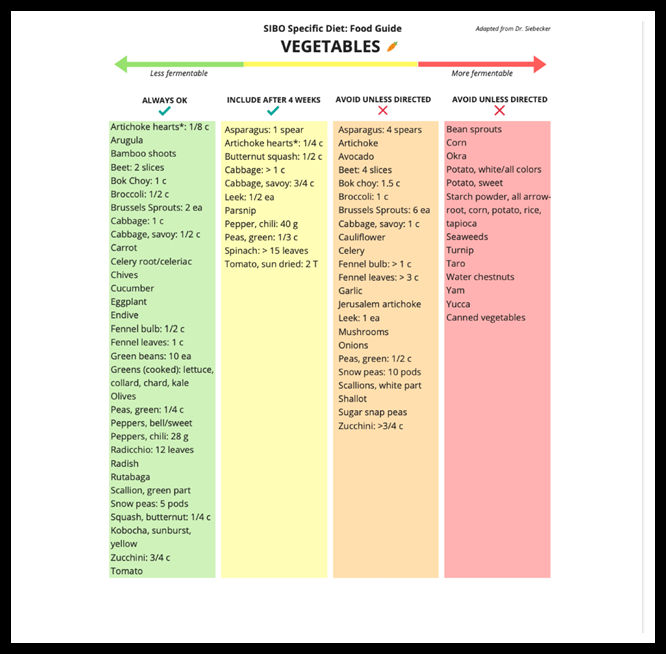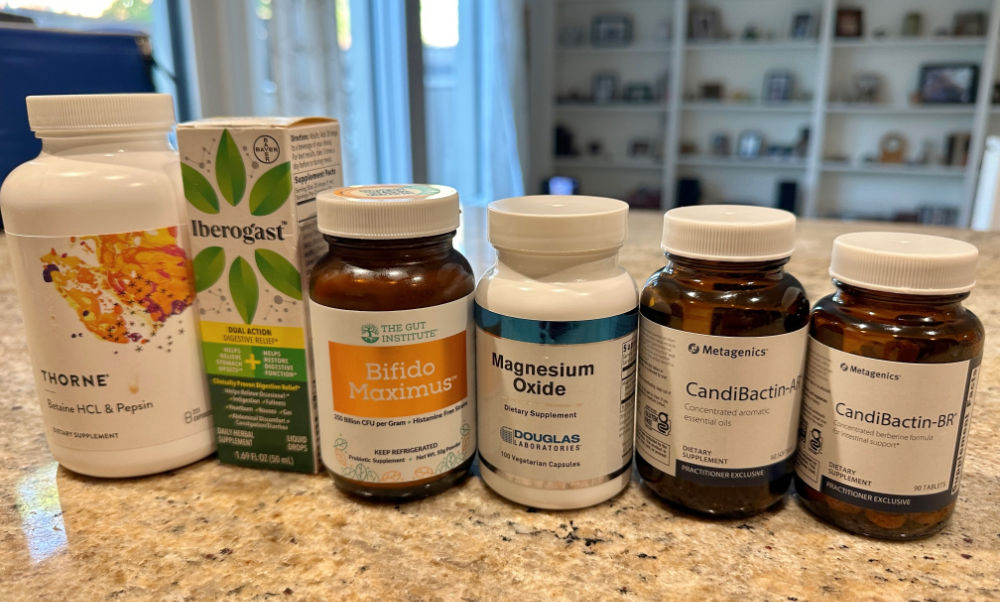
55% of People in the US who have been diagnosed with IBS have SIBO!
Considering that 15% of the US population has been diagnosed with IBS (Irritable Bowel Syndrome) that is a lot of sufferers. I recently joined the ranks of people diagnosed with SIBO (Small Intestional Bacteria Overgrowth). See this article for more details on how you get diagnosed and what SIBO actually is. Getting diagnosed with SIBO is the bad news. But the rest of this article contains all of the good news for getting better.
My successful journey putting SIBO into remission will provide a hopeful message for anyone grappling with chronic gut issues. Please note that this is not medical advice but is intended for educational purposes only. Nonetheless, consulting with a health coach experienced in addressing such issues, such as myself, can offer valuable strategies.
Following my accident last fall, which necessitated a month-long course of antibiotics due to two root canals, my delicate gut was wrecked. Subsequent tests, including a food sensitivity test, stool analysis, and SIBO breath test, revealed concerning results. In the past I would have made these problems worse by worrying incessantly about all of the “possible scary outcomes”, however, using the tools that I have developed over the years as a health coach and yoga teacher, I am taking an empowered approach to healing and have successfully implemented various measures to alleviate this flare-up.

Treatment Approaches for SIBO ! Please rule out more serious Gut issues with your health professional
SIBO treatment is complex, and there are four primary methods, according to leading SIBO expert Dr. Allison Siebecker:
Elemental Diet: A two-week liquid diet designed to eradicate SIBO while meeting nutritional needs. Pros include rapid effectiveness and extensive research, but it may taste unpleasant and is not universally effective.
Specialized Antibiotics: Antibiotics targeting bacteria in the small intestine specifically. While well-researched and tolerated, multiple rounds may be necessary, and it can be costly and unavailable at times.
Herbal Remedies: Herbal formulas designed to kill small intestine bacteria, albeit more gradually than antibiotics. Pros include various formula options and generally good tolerance, but it may require experimentation and multiple rounds.
Dietary Changes: Crucial for symptom relief and preventing relapses, dietary adjustments accompany all treatment methods. While dietary changes alone won’t eliminate existing bacteria, they are essential. Common dietary recommendations include a Low FODMAP diet, which restricts fermentable carbohydrates that feed small intestine bacteria.
What are FODMAPS?
FODMAPs are fermentable carbohydrates found in many fruits, vegetables, and beans. These foods are favored by bacteria in the small intestine. Various resources, such as Dr. Siebecker’s SIBO Specific Diet, the Monash Institute Low FODMAP diet, Dr. Pimental’s Cedar Sinai diet, and the GAPS diet, offer guidance on Low FODMAP eating. These diets typically categorize foods into green (safe), orange (may cause symptoms), and red (to be avoided) groups. It’s important to reintroduce restricted foods gradually to prevent nutrient deficiencies.

The Devil Is In the Details!
Despite the promise of these treatments, managing SIBO requires attention to detail. Personal experience taught me that symptoms may worsen initially, and adjustments like eliminating garlic, sweet potatoes, celery, shallots, and fibrous fruits became necessary. This was difficult for me since I cook a great deal with these foods and rely on their fiber to stay regulated in my bowel movements.
Snacking should be eliminated during SIBO flare ups. I am used to snacking on food while I work. In order to regulate your migrating motor complex, (MMC), which helps the food leave the small intestine and move into the large intestine, your food consumption needs to be four hours apart from the last meal.
I also had to give up or change up many of my supplements that contained offending ingredients such as chicory root inulin, aloe vera, artichoke, citrus pectin, and stevia. Look at your supplements carefully especially if they are not single ingredient nutraceuticals. Find below the new supplements I am on during SIBO treatment.

Having Help To Navigate Complex Conditions is So Important!
In navigating SIBO, meticulousness is paramount, as evidenced by the intricate considerations surrounding dietary choices and lifestyle adjustments. While the journey may be challenging, the prospect of remission and improved gut health will be so rewarding. Let me help you. I walk the walk, not just talk the talk. Feel free to reach out to me.
Here is to Aging Vibrantly No Matter What You are Facing!
Andrea




Very detailed and informative. A wealth of information.
Thank you for reading and commenting. X0X0